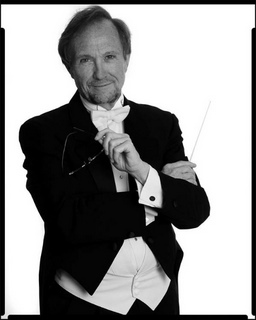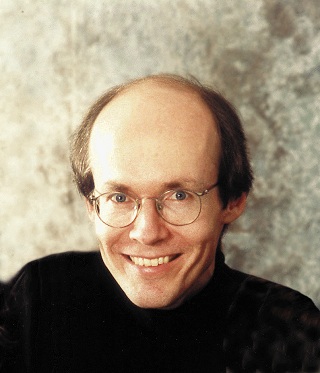As I wrote in last month’s column, much Western choral music denotes and illuminates the celebrations and rituals of the Christian year. Over a span of many centuries, European temporal powers employed composers and performers to create thousands of religious masses and motets giving praise to God.
 These works reflected the genuine piety of religious and political leaders, in a way in which a post-Enlightenment society can scarcely understand. But at the same time, those who commissioned these works surely understood the power of art to reinforce their temporal power. A performance of a mass was more than pleasant musical setting of a sacred text. It was a statement of cultural and ethnic identity, and a potential rallying point in times of strife.
These works reflected the genuine piety of religious and political leaders, in a way in which a post-Enlightenment society can scarcely understand. But at the same time, those who commissioned these works surely understood the power of art to reinforce their temporal power. A performance of a mass was more than pleasant musical setting of a sacred text. It was a statement of cultural and ethnic identity, and a potential rallying point in times of strife.
At the beginning of the 21st century, many find themselves in the odd position of encountering religious choral music most often in the rarified atmosphere of the concert setting, rather than as part of a sacred service. Although we may come to know much of this music well, we have little knowledge of, or interest in, the societies from which it sprang. We’re more likely to venerate Mozart than we are to regard with much interest or respect the autocratic Salzburg Archbishop who employed him to fill his church with music.
Composers’ mass settings had their part to play in the sectarianism and strife of past centuries. But what do they mean to us today, in a society in which religious plurality is buttressed by law, and multiculturalism is an essential if imperfectly realized aspect of Canadian identity?
A definitive answer to this question is (thankfully) beyond the scope of this article. But upcoming performances of Bach’s St. John Passion, given by Chorus Niagara and led by veteran conductor Robert Cooper on March 6-7, illuminate this ongoing question. One of the most important works of the classical repertoire, the St. John Passion can be alarming in its depiction of the Jewish hordes as a mob of Christ-killers, in light of some of the anti-semitic excesses of 18th-century Europe.
But while anti-semitism has by no means disappeared from the modern world, the concert setting in which Bach’s music is now most often heard in many ways removes it, in a positive sense, from the more problematic aspects of the Baroque church. What is left is Bach’s extraordinary settings of the Passion scriptures. The finger-pointing inherent in the text is to a great degree mitigated by music filled with compassion, tenderness, and a vast understanding of human frailty.
Various other sacred settings can be enjoyed in the weeks to come. The Elora Festival Singers sing Rachmaninoff’s Vespers (Guelph, March 21); The Etobicoke Centennial Choir sings Beethoven’s Mass in C and Bernstein’s Chichester Psalms (March 27). The Hart House Singers perform Brahms’ German Requiem (also March 27). Mozart’s Coronation Mass and Piano Concerto No. 21 will be heard at Jubilee United Church on March 28. And Cardinal Carter Academy for the Arts performs Fauré’s Requiem and Duruflé’s Messe Basse as part of an all-French programme on 30 March.
Good Friday, which this year falls on April 2 , brings with it many concerts. One can choose from among the following: Cantabile Chorale of York Region’s The Rose of Calvary; Toronto Chamber Choir’s Membra Jesu Nostri, an oratorio setting by J.S. Bach’s idol, Dietrich Buxtehude; the Durham Philharmonic Choir’s programme that includes Fauré’s Requiem; and the Metropolitan United Church Festival Choir performing Brahms’ German Requiem. As well, the Grand Philharmonic Choir of Kitchener performs Bach’s Mass in B Minor in Kitchener with a as good a group of solists as one is likely to hear anywhere: Suzie Leblanc,Laura Pudwell, Michael Schade, and Russell Braun.
 Other unusual “non-mass” concerts are of note in March and April. Lovers of Brahms can also hear two interesting choral works: Rinaldo, and the beautiful Alto Rhapsody, performed by the Victoria Scholars on March 7. David Fallis conducts the March 13 debut concert of Choir 21, an intriguing new ensemble specializing in 20th century music (though I note that they are throwing in some Hildegard of Bingen as well). The excellent Toronto Children’s Chorus teams up with American counterparts the Boston City Singers, for a March 5 concert that includes Schumann’s often overlooked Mädchenlieder. And the Tafelmusik Orchestra and Choir mount a programme, from March 10 to 14, entitled “Bach in Leipzig,” which focuses on Bach’s work in the final stage of his career, as Cantor of the Thomasschule and music director of Leipzig’s two largest churches.
Other unusual “non-mass” concerts are of note in March and April. Lovers of Brahms can also hear two interesting choral works: Rinaldo, and the beautiful Alto Rhapsody, performed by the Victoria Scholars on March 7. David Fallis conducts the March 13 debut concert of Choir 21, an intriguing new ensemble specializing in 20th century music (though I note that they are throwing in some Hildegard of Bingen as well). The excellent Toronto Children’s Chorus teams up with American counterparts the Boston City Singers, for a March 5 concert that includes Schumann’s often overlooked Mädchenlieder. And the Tafelmusik Orchestra and Choir mount a programme, from March 10 to 14, entitled “Bach in Leipzig,” which focuses on Bach’s work in the final stage of his career, as Cantor of the Thomasschule and music director of Leipzig’s two largest churches.
Two world music/classical-hybrid concerts stand out in March. Echo Women’s Choir is a lively Toronto ensemble led by husband and wife team Becca Whitlaw and Allan Gasser. These musicians are as at home with folk music as they are with classical music, and their repertoire choices always reflect this easy pairing. Their offering on March 20 is “Ceilidh: A Down-East Kitchen Party.” Also, in a short number of years, world music ensemble Autorickshaw has established itself as one of the more inventive and interesting groups around. They team up with the Jubilate Singers on March 27.
Benjamin Stein is a tenor and theorbist. He can be contacted at: choralscene@thewholenote.com.



